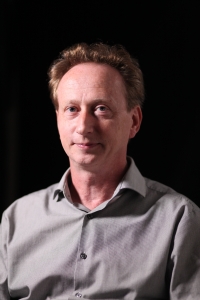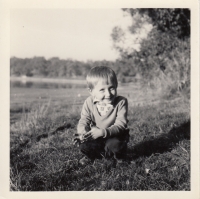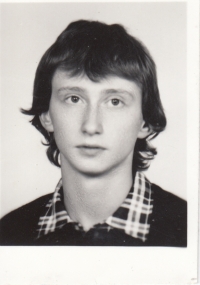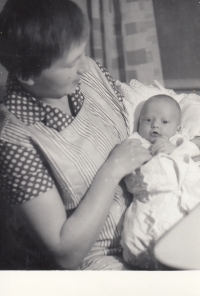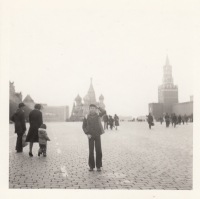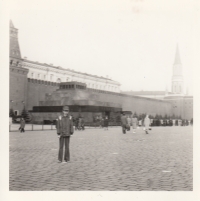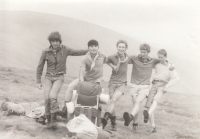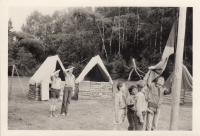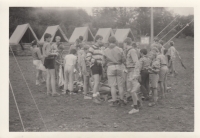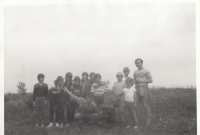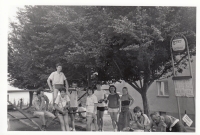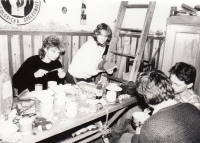We knew it was an either/or situation

Download image
Martin Ehrlich was born on November 23, 1966 in České Budějovice. He attended eight-year primary school Matice školská in České Budějovice. Since 1978 he went to the tourist (originally scout) group Čtveráci. At school, his parents also enrolled him in religious education, which made his admission to the grammar school more difficult. In 1981 - 1985 he studied at the Karel Šatal Grammar School in České Budějovice. At that time he led a secret group of ministrants. In 1980, a witness and his parents visited the Soviet Union. Martin dreamed of studying science and botany at the Charles University. However, because of his religious beliefs, to which he openly declared himself, he was afraid of not accepting. Since 1985 he studied at the Faculty of Agriculture in České Budějovice. In the spring of 1989, the witness was questioned by the State Security and was offered a cooperation, which he refused. On 12 November 1989 he took part in the canonization of St. Agnes of Bohemia in the Vatican. During the Velvet Revolution in November 1989, he was actively involved in the student strike committee and became its main coordinator within the České Budějovice faculties. In the spring of 1990, he sat in the commission to finish the work of the State Security in České Budějovice. In 1991 he completed his university studies. After school, he completed civilian service at the Salesian Youth Center. For the next three years he worked at the bishopric of České Budějovice as director of the diocesan center for youth. From the mid-1990s until the filming he worked in the IT field. From 2007 until the time of filming, he was an active mayor in Mokrý Lom, where he also lived. Martin has been married since 1990. He and his wife Ludmila have three adult children. At the time of filming, his wife was engaged in temporary fostering.
